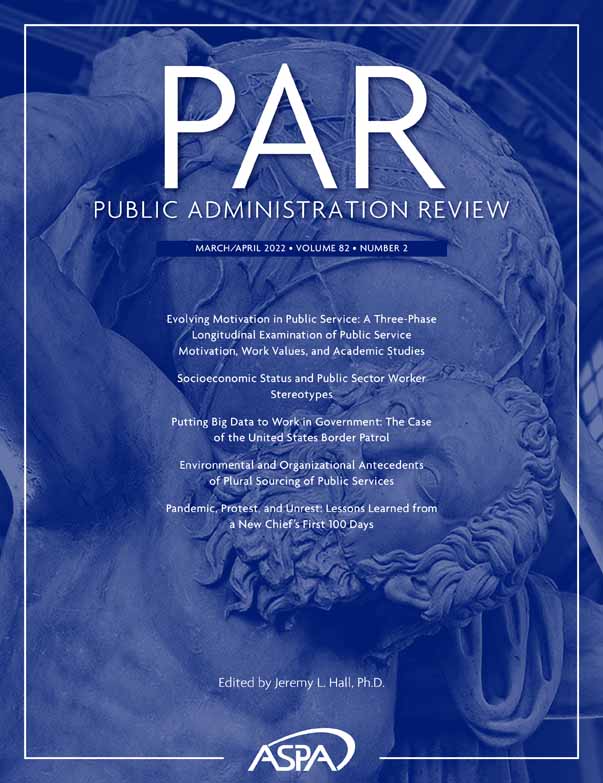American Society for Public Administration Code of Ethics
The American Society for Public Administration (ASPA) advances the science, art, and practice of public administration. The Society affirms its responsibility to develop the spirit of responsible professionalism within its membership and to increase awareness and commitment to ethical principles and standards among all those who work in public service in all sectors. To this end, we, the members of the Society, commit ourselves to uphold the following principles:
Advance the Public Interest. Promote the interests of the public and put service to the public above service to oneself.
Uphold the Constitution and the Law. Respect and support government constitutions and laws, while seeking to improve laws and policies to promote the public good.
Promote Democratic Participation. Inform the public and encourage active engagement in governance. Be open, transparent and responsive, and respect and assist all persons in their dealings with public organizations.
Strengthen Social Equity. Treat all persons with fairness, justice, and equality and respect individual differences, rights, and freedoms. Promote affirmative action and other initiatives to reduce unfairness, injustice, and inequality in society.
Fully Inform and Advise. Provide accurate, honest, comprehensive, and timely information and advice to elected and appointed officials and governing board members, and to staff members in your organization.
Demonstrate Personal Integrity. Adhere to the highest standards of conduct to inspire public confidence and trust in public service.
Promote Ethical Organizations. Strive to attain the highest standards of ethics, stewardship, and public service in organizations that serve the public.
Advance Professional Excellence. Strengthen personal capabilities to act competently and ethically and encourage the professional development of others.
Approved by the ASPA National Council March 16, 2013, along with Practices for carrying out the Code available at www.aspanet.org/CodeofEthics. In 2014, the Ethics and Standards Implementation Committee was created to advance awareness of ethics in public service, provide advice and assistance to members in handling ethical problems, and review and seek to resolve ethics complaints regarding members who may have violated the Code.




